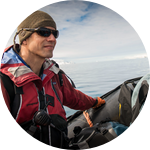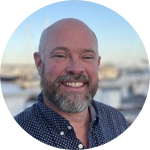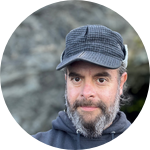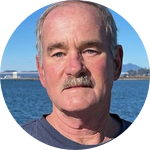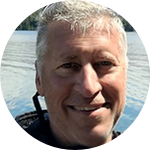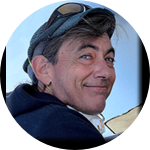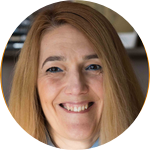About This Project
SeaSounds Project is a study of the effects of vessel noise on the vocalizations and behaviors of humpback whales in the shipping lanes near San Francisco Bay. Our project involves taking acoustic samples beneath the surface along with topside visual observations to determine how whales react in the presence of passing vessels. The data is important to researchers, stakeholders and policy makers to help reduce mortality and injuries from ship strikes and entanglements in fishing gear.
Ask the Scientists
Join The DiscussionWhat is the context of this research?
The Northern California coastline including Greater Farallones and Golden Gate Strait is home to both one of the busiest shipping ports on the west coast and popular fishing grounds. Both lie directly in the path of annual humpback whale migrations along the western coast of the United States. Whale deaths and injuries due to vessel strikes and entanglements in fishing gear have been on the rise in recent years.
Increased levels of anthropogenic noise has been shown to alter acoustic communication, migration patterns, foraging activity and stress responses.
Scientists have conducted research in the Pacific Northwest, Southern California, Monterey and along the east coast to study the effects of vessel noise on humpback whale populations.
Despite increased shipping traffic over the years, there is currently a research gap in the waters near the San Francisco Bay. Including in-field visual data along with acoustic sampling makes this study unique and geographically focused.
What is the significance of this project?
The ocean’s underwater world is an ambient symphony of sound. Animals moving across their habitats, crustaceans looking for a place to settle on the seafloor, diving seabirds, surface winds and other geophysical movements of the earth all blend to form a dynamic rhythm recognizable to all its inhabitants.
Humpback whales rely on sound to analyze their surroundings, hunt for source food, communicate with one another, and act as a navigation aid during their annual migrations.
According to NOAA, anthropogenic noise from human activities has been shown to disrupt this natural soundscape while introducing stress and altering behavior in marine animals. Behavioral changes can include habitat abandonment, disruption of foraging activity, alteration of vocalization, and other effects, and lead to chronic stress and population-level impacts.
This study is intended to help determine if ship noise is driving whales towards the front of passing vessels or into nearshore fishing grounds.
What are the goals of the project?
The goal of this project is to help determine what effect human made noise is having on the behavior and vocalizations of humpback whales.
Acoustic samples will be taken from onboard the BayQuest patrol vessel with the use of an omnidirectional hydrophone designed to capture sensitive underwater sounds. Each mission will consist of brief 30-minute recording samples taken from 1-10 meters above the sea floor.
Acoustic recordings will be supported by concurrent visual observations documented during each sampling session. Observations include whale species, count, behavior and number of surface breaths. This data overlap will help determine any patterns of behavioral change. Sightings will be photographed and all visual data uploaded to recognized citizen science apps for public access.
The plan includes up to 140 sound/visual samples from 4 consistent data collection sites both in the presence/absence of vessel traffic for comparative analysis.
Budget
The budget items listed in this proposal represent the main technology and equipment items needed to capture and store the intended data for this project. It includes the means to create a library of sound and visual observations while enabling real-time vessel-based satellite/internet access to cloud storage.
The technology component of BayQuest SeaSounds Project is a key requirement for an overall research project that includes vessel and crew costs, outreach/collaborations, staffing requirements to manage data and research analysts to compile and interpret field observations.
Acquiring the necessary equipment enables our team to begin testing, technician training and capture preliminary data samples to support the value of the study and seek greater program funding.
Grant and supplemental fundraising opportunities are being pursued through public, private and corporate giving programs.
Thank you for considering this vital funding request!
Endorsed by
 Project Timeline
Project Timeline
The BayQuest SeaSounds Project is slated to commence with testing/training in January 2025 with completion in December 2025.
This timeline provides ample time to develop sufficient acoustic/visual samples during each season of the year - and in relation to expected peak whale migration periods.
It allows sufficient time following the data collection period to thoughtfully analyze the data sets and publish a peer-reviewed assessment of the study.
Jan 14, 2025
Project Launched
Jan 31, 2025
Equipment/vessel acquisition including hydrophone, field sampling accessories, access and data collection and storage technology
Feb 15, 2025
Begin field testing/training of equipment and personnel
Mar 17, 2025
Begin field data (hydrophone/visual) compilation at designated data collection points
Nov 17, 2025
Completion of field data (hydrophone/visual) compilation for up to 140 at-sea missions during peak migration periods and seasonal changes
Meet the Team
Affiliates
Team Bio
BayQuest SeaSounds Project is a collaborative effort with a proven team of marine scientists, acousticians, engineers and whale ecologists who have provided expert guidance in the development of this important research project.
Among them, Cornell University Conservation Bioacoustics Lab, Monterey Bay Aquarium Research Institute, Google Research, Scripps Institution of Oceanography, CalMaritime Academy, University of Washington, BC Whale, HappyWhale and others.
Ray Duran
Ray Duran is a professional captain and mariner with over 20 years working on and enjoying San Francisco Bay and near coastal waters. He is a USCG Licensed 100-ton Master who has served as lead training captain and fleet manager with a Bay Area-based high-speed private commuter ferry service which served passengers from points between South San Francisco and the Carquinez Strait up to Benicia.
His maritime experience includes at-sea expeditions with a well-respected naturalist-led whale watching and eco-tour operator accumulating countless missions on inland waters and over 200 documented trips offshore to the Greater Farallones National Marine Sanctuary and Farallon Island chain.
It was aboard this vessel which bills itself as a “classroom at sea,” that Ray gained first-hand familiarity with the burgeoning aquatic life while learning to navigate and interact safely in the presence of whales and other marine wildlife that call these local waters home.
An avid sailor with experience as captain of a San Francisco-based charter schooner and as crew aboard a legendary former America’s Cup yacht, Ray also served for years as a member of the Board of Directors and Keelboat Director for the Bay Area Association of Disabled Sailors, helping to make the joy of sailing safe and accessible to differently-abled citizens throughout the Bay Area.
The BayQuest vision combines his experience as a professional mariner with a deep sense of connection with the vibrant local marine life – and a passion to help protect their vital habitat.
Dimitri William Ponirakis
I am a senior noise analyst and applications programmer for the K. Lisa Yang Center for Conservation Bioacoustics. My main roles are developing tools and methods for noise analysis. I develop tools to process, analyze, model, and visualize acoustic data. Software development includes development of an Acoustic Ecology Toolbox to model the loss of communication space and masking of animal vocalizations from anthropogenic and abiotic sound sources. I am responsible for carrying out noise analysis on numerous projects from LNG terminal construction and operational activities off the East Coast, to seismic prospecting in the Arctic, to looking at the impact of cruise vessels in Glacier Bay National Park in the Pacific Northwest. Previous experience includes working for noise and vibration consulting firms, and assessing and researching the environmental impact of noise from transportation, industrial, mining, and entertainment sources.
Firuze Gokce
Experienced entrepreneur and marketing strategist Firuze Gokce has been leading ventures since 2000. Her first web project, “Exhibition of Grand Anatolia,” was acquired by the Turkish Government, marking the start of a dynamic career. She co-founded three startups, gained international recognition as a judge for the Affiliate Marketing Awards, and earned honors from Affiliates4u and other global industry leaders. Her influence in affiliate marketing has led to international invitations and accolades.
After relocating to California, Firuze discovered a new passion for marine conservation. She actively supports nonprofits such as the American Cetacean Society, BayQuest, Orcasound, and Sustainable Ocean Alliance, combining her love for the ocean with her artistic talent. A lifelong artist, Firuze channels her creativity to advocate for the protection of whale species and marine ecosystems.
Firuze debuted her art show, Whale Sounds on a Canvas, on May 23, 2024. She participated in the Sebastopol Art Center’s “Art Trails” program and the Art Star Gala Silent Auction. Her work, inspired by the ethereal beauty of whale sound waves and spectrograms, transforms acoustic patterns into vibrant visual expressions. These abstract artworks reflect the rhythmic complexity of marine sounds, bridging the auditory and visual worlds.
Blending scientific observation with artistic abstraction, Firuze’s art evokes a sense of wonder and connection with marine life. Her pieces serve as a visual interpretation of the ocean’s soundscapes, fostering appreciation for the unseen melodies of the sea and inspiring audiences to reflect on the mysteries of the marine world.
Stephen Kielar
An Adjunct Professor in the Oceanography lab at Cal Maritime Academy, Steve Kielar brings a unique blend of science, teaching methodology and vessel operations to the BayQuest team.
Steve is a marine ecologist with years of experience teaching environmental education and oceanography at sea and on land. He received an MS in Marine Biology with a focus on science teaching, applying active learning, assessment and diversity, equity and inclusion strategies into learning.
His experience includes teaching oceanography in the San Francisco Bay and near coastal waters and sailing as a Scientist for Sea Education Association in the Caribbean, Western Europe and the South Pacific.
Before joining Cal Maritime Academy staff, Steve was a professor of Oceanography and Marine Biology at Diablo Valley College and a Biology Laboratory Instructor at San Francisco State University. He is a licensed USCG 100-ton Captain, served as Director of Education for Call of the Sea and as a popular Field Science Educator for NatureBridge in Marin County.
Additional Information
Research Team
Dimitri Ponirakis (PI); Acoustics Analyst, Cornell University; K.Lisa Wang Center for Conservation Bioacoustics
Steven Kielar; Adjunct Professor; California State University - Maritime Academy
Firuze Gokce; BayQuest, Project Lead - Acoustics
Jim Trezzo; Engineer/Founder Trezco Systems
____________________
Passive acoustic monitoring - hydrophone recordings beneath the surface - can help identify the effects of climate change on the health of the natural ambient environment while providing a window into the level of disruption human-made noise may be having on this delicate ecosystem. It can also provide a framework for the development of AI Models to analyze vocalization patterns, noise source differentiation, behavioral/stress indicators and seasonality of heightened risk to humpback whales.
It can also provide researchers, stakeholders and policymakers with additional data points in evaluating the need to install permanent sea-floor based monitoring stations, modify shipping lane locations or fishing seasonality and help encourage voluntary slow-down initiatives in Marine Protected Areas (MPA's) within the shipping industry.
BayQuest is a nonprofit, tax exempt charitable organization under Section 501(c)(3) of the Internal Revenue Code. Donations are tax deductible as allowed by law.
EIN #99-1575962.
Project Backers
- 7Backers
- 4%Funded
- $235Total Donations
- $33.57Average Donation
